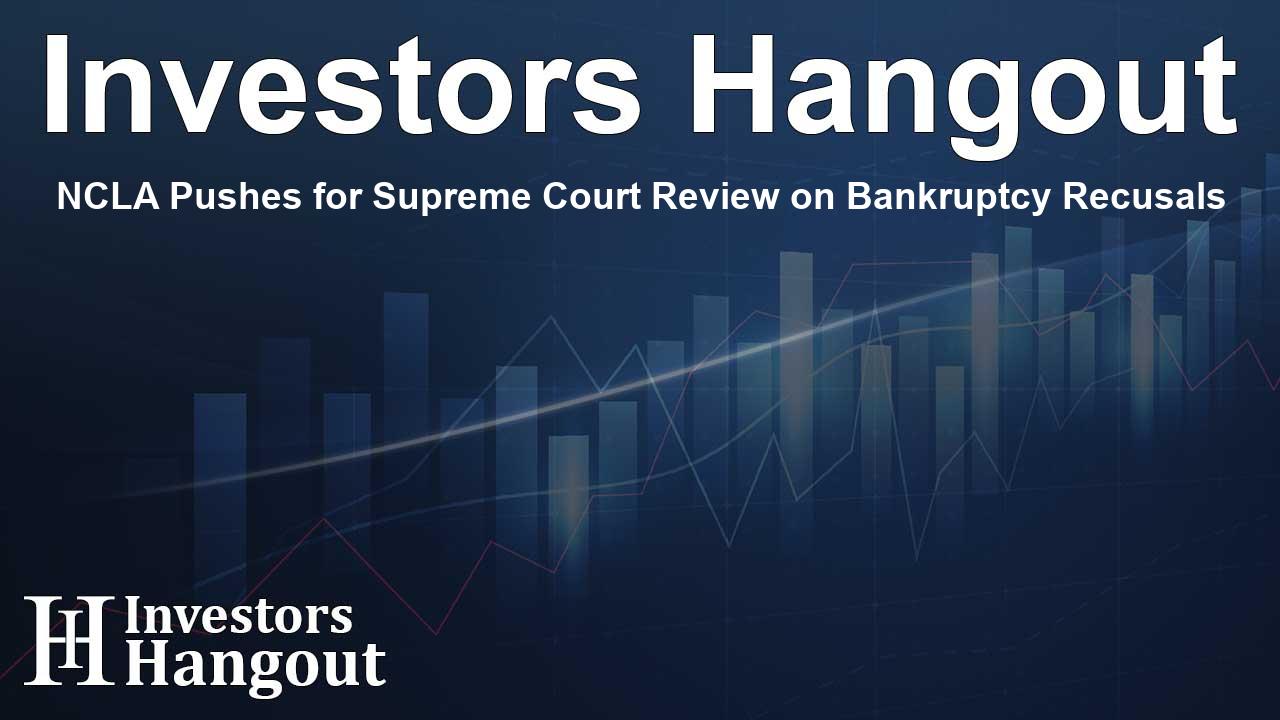NCLA Pushes for Supreme Court Review on Bankruptcy Recusals

NCLA Pushes for Supreme Court Review on Bankruptcy Recusals
The New Civil Liberties Alliance (NCLA) has taken a significant step by filing an amicus curiae brief requesting the U.S. Supreme Court to hear the case of James Dondero v. Stacey G. Jernigan. The organization is advocating for a change in how federal appellate courts review the recusal decisions made by bankruptcy judges. They propose that these courts need to assess such decisions without applying a deferential 'abuse-of-discretion' standard and instead conduct a thorough de novo review.
The Case's Background
This case stems from a motion submitted by James Dondero, which sought the recusal of Texas bankruptcy judge Stacey Jernigan from a bankruptcy proceeding. Mr. Dondero raised concerns over Judge Jernigan's impartiality, citing three novels authored by her that contained characters reminiscent of both Judge Jernigan and himself. After Judge Jernigan denied the motion, Mr. Dondero escalated the issue to federal district court and subsequently to the U.S. Court of Appeals for the Fifth Circuit, where both courts upheld Judge Jernigan's decision using a deferential standard.
The Unique Position of Bankruptcy Judges
Bankruptcy judges are notably distinct from their counterparts in the federal district and appeals courts. They are not appointed by the President and do not receive Senate confirmation. Additionally, they lack life tenure and have salaries that can be altered while they serve. This absence of protection can inhibit their independence, leading to questions about impartiality and due process. NCLA argues that when Article III courts review decisions from bankruptcy judges, they should apply strict judicial scrutiny rather than simply deferring to the lower courts.
Previous Efforts by NCLA
NCLA has been consistent in demanding that independent judicial decisions be a priority in U.S. courts. In a previous case, Relentless Inc. v. Department of Commerce, NCLA successfully persuaded the Supreme Court to abolish Cheron deference, which allowed executive agencies excessive leeway in interpreting unclear statutes. The principles established in this prior case bolster NCLA's argument against the deferential review standard in Dondero v. Jernigan.
Statements from NCLA Leaders
Following the filing, NCLA officials shared their thoughts on the implications of this case. Russ Ryan, Senior Litigation Counsel, stated, "Article III courts should not defer to non-Article III adjudicators on questions of law. Whether those adjudicators are Article I bankruptcy courts or Article II executive agencies, litigants deserve de novo judicial review and the independent judgment of Article III courts in determining what the law is."
Mark Chenoweth, President of NCLA, emphasized the need for proper oversight, saying, "Bankruptcy judges do not enjoy the judicial independence of Article III judges. So, when bankruptcy judges refuse to recuse, Article III judges must review those decisions anew, not under an abuse of discretion standard. Otherwise, Article III courts will uphold decisions not to recuse even when impartiality is fairly suspect, as here."
Conclusion
NCLA continues to advocate for the protection of constitutional rights and proper judicial processes. Their work aims to ensure that the principles of justice and fairness are upheld across all levels of the legal system. Bankruptcy judges' decisions, particularly those regarding recusal, deserve a scrupulous review to maintain public confidence in the judiciary.
Frequently Asked Questions
What is the main issue in the NCLA case?
The case revolves around whether federal appellate courts should defer to bankruptcy judges' recusal decisions or conduct an independent review.
Why are bankruptcy judges viewed differently from other judges?
Unlike other judges, bankruptcy judges are not appointed by the President and do not have life tenure, affecting their independence.
What precedent does NCLA cite in their arguments?
NCLA references their success in ending Cheron deference to support their push for higher review standards.
How do courts currently treat recusal decisions by bankruptcy judges?
Courts currently apply a deferential standard, asking only whether a bankruptcy judge abused discretion in their decision.
What impact could the Supreme Court's ruling have?
A ruling in favor of NCLA could shift the standard of review for bankruptcy judges' decisions, enhancing judicial oversight and integrity.
About The Author
Contact Hannah Lewis privately here. Or send an email with ATTN: Hannah Lewis as the subject to contact@investorshangout.com.
About Investors Hangout
Investors Hangout is a leading online stock forum for financial discussion and learning, offering a wide range of free tools and resources. It draws in traders of all levels, who exchange market knowledge, investigate trading tactics, and keep an eye on industry developments in real time. Featuring financial articles, stock message boards, quotes, charts, company profiles, and live news updates. Through cooperative learning and a wealth of informational resources, it helps users from novices creating their first portfolios to experts honing their techniques. Join Investors Hangout today: https://investorshangout.com/
The content of this article is based on factual, publicly available information and does not represent legal, financial, or investment advice. Investors Hangout does not offer financial advice, and the author is not a licensed financial advisor. Consult a qualified advisor before making any financial or investment decisions based on this article. This article should not be considered advice to purchase, sell, or hold any securities or other investments. If any of the material provided here is inaccurate, please contact us for corrections.
